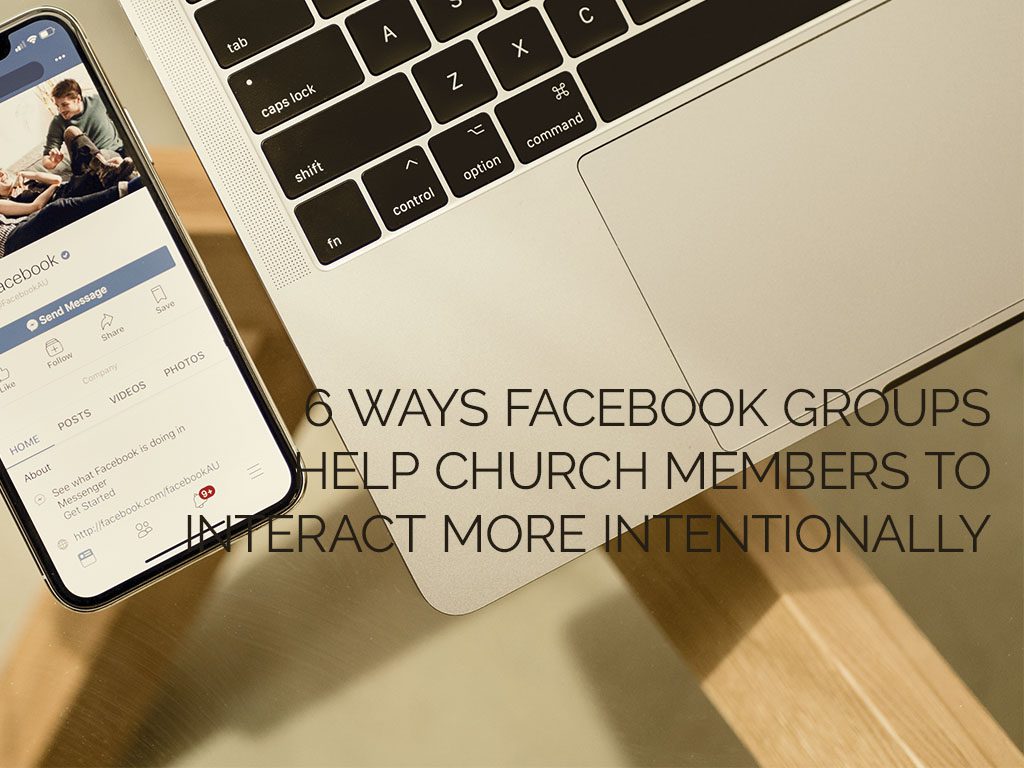The church I serve as pastor, Brushy Creek Baptist in Taylors, South Carolina, recently began testing the idea of Facebook Groups. We began with a group for our women’s ministry. Many churches and organizations are using Facebooks Groups to have meaningful conversations, to organize, and to grow their online communities. Our church learned a lot about itself as we began to use Facebook Groups and we hope that sharing these experiences will help other churches.
If you’re reading ChurchTechToday, then you probably know about the importance of leveraging social media platforms like Facebook. Here is some empirical data to consider:
- Worldwide, there are over 2.20 billion monthly active Facebook users for Q1 2018 (Facebook MAUs) which is a 13% increase year over year.
- There are 1.15 billion mobile daily active users (Mobile DAU) for December 2016, an increase of 23% year-over-year.
- 1.45 billion people on average log onto Facebook daily and are considered daily active users (Facebook DAU) for March 2018, which represents a 13% year over year.
- There are 1.74 billion mobile active users (Mobile Facebook MAU) for December 2016 which is an increase of 21% year-over-year.
- On average, the Like and Share Buttons are viewed across almost 10 million websites daily.
- The most common age demographic is those ages 25 to 34, currently 29.7% of users.
- Five new profiles are created every second.
- Highest traffic occurs mid-week between 1 to 3 pm.
- On Thursdays and Fridays, engagement is 18% higher.
- Average time spent per Facebook visit is 20 minutes.
- 50% of 18-24 year-olds go on Facebook when they wake up.
With all of these stats, your church and mine MUST do whatever we can to reach people via Facebook. Since we started using Facebook Groups, our church has seen phenomenal results.
Here are six ways Facebook Groups help church members to interact more intentionally:
#1 – Facebook Groups are private so there's no need for avoiding internal language
Over the weekend, I ordered a Caesar salad with chicken. When the server brought the salad, no chicken was on it. Upon receipt of the salad, I asked her, “Would you please bring some chicken to put on the salad?” She replied, “I asked you if you wanted ‘M-Chick’ and you said ‘No.’ ”
My co-worker was sitting across from me and said, “How are you supposed to know what ‘M-Chick’ is? She’s talking like we know the lingo they use back in the kitchen.” The point is that internal language was used and I didn’t know it. Why did the server use internal language? Because it was easier. We all prefer to use internal language, but must only do it when we are “in the kitchen.” A Facebook Group is the kitchen.
#2 – Facebook Groups encourage openness because the group is closed to outsiders
I’ve noticed people share their thoughts, feelings, and desires more when they know only people from the church will see them. This is good. When the group is closed, people feel more secure in sharing from the heart.
Religion and spirituality are, in general, sensitive subjects to discuss within large-scale social networks. There would be a need to be more sensitive or to explain certain subjects more fully that pertain to scripture, teachings, church music, etc. in an open group. This can limit the organic and open nature of positive exchanges via social media.
With a closed Facebook Group, there is trust and familiarity built into the fabric of the social community and the conversations. This can inspire and encourage wonderful dialogues where people can confidently share their thoughts, feelings, and insights, and know that they are understood and supported.
#3 – Facebook Groups algorithm bumps groups toward the top of their feeds
My wife is in the women’s ministry Facebook Group. She said she never misses a post from the women’s ministry because it is a group instead of its own page. Getting group notifications is very helpful for keeping up with posts and conversations as they happen in real-time. The more frequently group members are posting the higher and more often the group will show up in your feed and/or you will get notified of new posts.
Another benefit is that you can decide how often you get notifications by choosing to get notifications for all posts or just highlights. And on the flipside, you can unfollow a group if it becomes too much.
#4 – Facebook Groups poll features allow you to connect in non-traditional ways
Polls are a fun and interactive feature that allow people to take action and to interact intentionally. This fun feature also allows the group moderator and members to learn more about the group and its preferences, ideas, etc through the statistics that result from the polls. Use it for fun and serious things alike.
Constructing a mix of thoughtful, useful, and amusing polls can kick-start conversations, deepen understanding or lighten the mood. Whichever way they are used, polls are a proven way to increase social media engagement, offer fresh content, and learn more about members. Just remember not to overuse them.
#5 – Facebook Groups is a great venue for asking open-ended questions to encourage spiritual growth
Asking open-ended questions is a way to welcome authentic contributions and discussion. This goes back to the openness people experience in groups. Open-ended questions allow people to fill in the blanks with their own unique perspectives, which can offer illuminating teachings, stories or other helpful lessons to enter the space. Save “Yes” or “No” types of questions for polls (see above).
As people begin sharing their answers more openly they will also have the opportunity to get to know one another better. Spiritual growth can happen in an open and trusting environment where people are sharing from the heart.
#6 – Facebook Groups make it easy to promote events by posting “behind the scenes” pictures and videos
With increased sharing, openness, and trust that is felt within a Facebook Group, members begin to experience more freedom to share sneak peaks and behind the scenes content like pictures and videos. Promoting and sharing event invites is one of the most useful ways social media brings people together.
Photos and videos are welcoming and effective advertising and creative content that instantly draws attention to your events and inspires people to get involved and learn more. And if you're concerned, feel free to include a message that reminds members that images and video content are only for the group members and are not to be shared or specify that it can be shared outside the group if that's okay.
I hope you will try out Facebook Groups for your church. It can be a blessing for your faith family.




